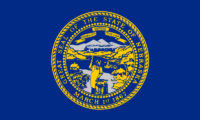 Nebraska became the second midwestern state to update its public notice law in 2022 when Gov. Pete Ricketts (R) signed Legislative Bill 840 on April 18.
Nebraska became the second midwestern state to update its public notice law in 2022 when Gov. Pete Ricketts (R) signed Legislative Bill 840 on April 18.
LB-840 requires newspapers to post notices on the Nebraska Press Association’s statewide website. It also raises public notice ad rates from 45 cents per line to 48 cents per line for 12 months beginning Oct. 1, 2022, and to 50 cents per line on Oct. 1, 2023. That 11 percent boost over the next 18 months is the state’s first public notice rate increase in 26 years.
Making lemonade out of lemons in Florida
 We have long feared the day the first state in the U.S. passes a law authorizing the government to post all or most public notice on government websites in lieu of newspapers. That day happened last month when the Florida House and Senate both voted largely along party lines to approve House Bill 7049.
We have long feared the day the first state in the U.S. passes a law authorizing the government to post all or most public notice on government websites in lieu of newspapers. That day happened last month when the Florida House and Senate both voted largely along party lines to approve House Bill 7049.
Gov. Ron DeSantis is widely expected to sign the bill when it reaches his desk. The bill takes effect on Jan. 1, 2023.
[See a description of the key features of HB-7049 below this story.]
Midwest press groups seek to modernize public notice laws
 (This article was corrected on April 28, 2022. See below for corrections.)
(This article was corrected on April 28, 2022. See below for corrections.)
Press associations in four midwestern states are supporting bills that would update their states’ public notice laws.
Legislatures in Minnesota and Nebraska are considering bills that would require newspapers to post all notices on their press association’s statewide public notice website. Also in Minnesota, and in Missouri, lawmakers may respond to an evolving local media environment by relaxing standards newspapers must meet to qualify to publish notices. And in South Dakota, the legislature has already passed a bill with primary elements identical to the legislation being considered in Minnesota.
Ill-considered Florida bill on the move
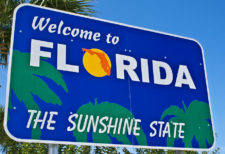 Good news: By March 1, 2021, bills had been introduced in 20 states that would have moved all public notice, or a significant percentage of it, from newspapers to government websites. A year later we’ve seen similar legislation in only six states.
Good news: By March 1, 2021, bills had been introduced in 20 states that would have moved all public notice, or a significant percentage of it, from newspapers to government websites. A year later we’ve seen similar legislation in only six states.
Bad news: The bill in one of those states — Florida House Bill 7049 — is a serious threat to become law. HB-7049 passed out of committee last Monday and is expected to be approved by the full House sometime this week.
So the battle over public notice in Florida comes down to the Senate, as it has in the past.
Public notice in Florida in peril once again
 Our original headline for this story was “Newspaper notice off to good start in 2022.” But late last night we learned that Florida — a state that last year passed a progressive bill paving the way for the eventual migration of statutory notice to newspaper websites — was in play once again.
Our original headline for this story was “Newspaper notice off to good start in 2022.” But late last night we learned that Florida — a state that last year passed a progressive bill paving the way for the eventual migration of statutory notice to newspaper websites — was in play once again.
We haven’t had time to digest the 40-page bill, but it’s clearly designed to undo the work that went into last year’s historic legislation by moving public notice to government websites. The committee bill passed out of the Judiciary Committee this morning with GOP backing on a straight party-line vote.
Self-storage industry tries something new
 The last time we checked in on the self-storage industry, it had helped pass new laws in four states relieving itself of the burden of informing its indebted customers via newspaper ads that it was about to sell their property. By some estimates, about 30 states have now enacted statutes providing self-storage operators with non-newspaper notice options that are woefully insufficient.
The last time we checked in on the self-storage industry, it had helped pass new laws in four states relieving itself of the burden of informing its indebted customers via newspaper ads that it was about to sell their property. By some estimates, about 30 states have now enacted statutes providing self-storage operators with non-newspaper notice options that are woefully insufficient.
The private-equity dominated industry is back this year with legislation in at least five states that would give it the option to jettison newspaper notice of lien sales.
Year-in-Review: The five best new public notice laws of 2021
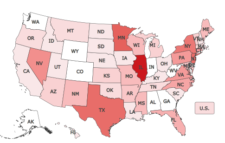 We began 2021 with a sense of dread. We feared it might be the year the first state legislature moved public notice from newspapers to government websites.
We began 2021 with a sense of dread. We feared it might be the year the first state legislature moved public notice from newspapers to government websites.
But that didn’t happen.
With only a handful of state legislatures still in session and little chance any of them will pass significant public notice legislation by the end of the year, newspaper notice is still alive and mostly well in every state.
PNRC issues self-storage flyer
 In 2013, the Ohio Legislature passed a law giving self-storage facilities a choice of how to provide public notice of lien sales of the personal property of defaulting renters. Instead of requiring them to publish two ads about each sale in a local newspaper, the bill also gave them the option to advertise in “any other commercially reasonably manner.” The mode of advertising would be deemed reasonable if “at least three independent bidders attend the sale.”
In 2013, the Ohio Legislature passed a law giving self-storage facilities a choice of how to provide public notice of lien sales of the personal property of defaulting renters. Instead of requiring them to publish two ads about each sale in a local newspaper, the bill also gave them the option to advertise in “any other commercially reasonably manner.” The mode of advertising would be deemed reasonable if “at least three independent bidders attend the sale.”
This year, the self-storage industry is backing a new piece of legislation in Ohio. SB-79 would provide self-storage operators with even more flexibility. It would:
Poor customer service a threat to newspaper notice
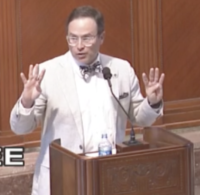 Article III, Section 13(A) of Louisiana’s Constitution requires legislators to publish two notices in a local paper when they plan to introduce a “local or special law” in the state legislature. The notices must “state the substance of the contemplated law, and every such bill shall recite that notice has been given.”
Article III, Section 13(A) of Louisiana’s Constitution requires legislators to publish two notices in a local paper when they plan to introduce a “local or special law” in the state legislature. The notices must “state the substance of the contemplated law, and every such bill shall recite that notice has been given.”
So: No notice, no bill.
Some Louisiana lawmakers may have been prevented from introducing local bills this year due to a lack of notice. We know this because — much to the chagrin of the Louisiana Press Association (LPA) — it became a topic of discussion in the legislature during discussions over Senate Bill 101, which authorized self-storage facilities to advertise lien sales “on a publicly accessible website that conducts personal property auctions” in lieu of a newspaper.
‘Devastating’ public notice bill debated in Pennsylvania
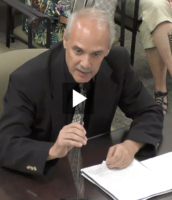 A hearing was held last week in Pennsylvania on House Bill 955, which would provide local governments in the state with the option to move their notices from paid-circulation newspapers to government websites or government-printed publications, newspaper websites, free-circulation newspapers, legal newspapers or shoppers.
A hearing was held last week in Pennsylvania on House Bill 955, which would provide local governments in the state with the option to move their notices from paid-circulation newspapers to government websites or government-printed publications, newspaper websites, free-circulation newspapers, legal newspapers or shoppers.
The hearing was notable for the breadth of issues it addressed and the emphasis the Pennsylvania NewsMedia Association placed on the economic impact the bill would have on local newspapers in the state if it passes.
